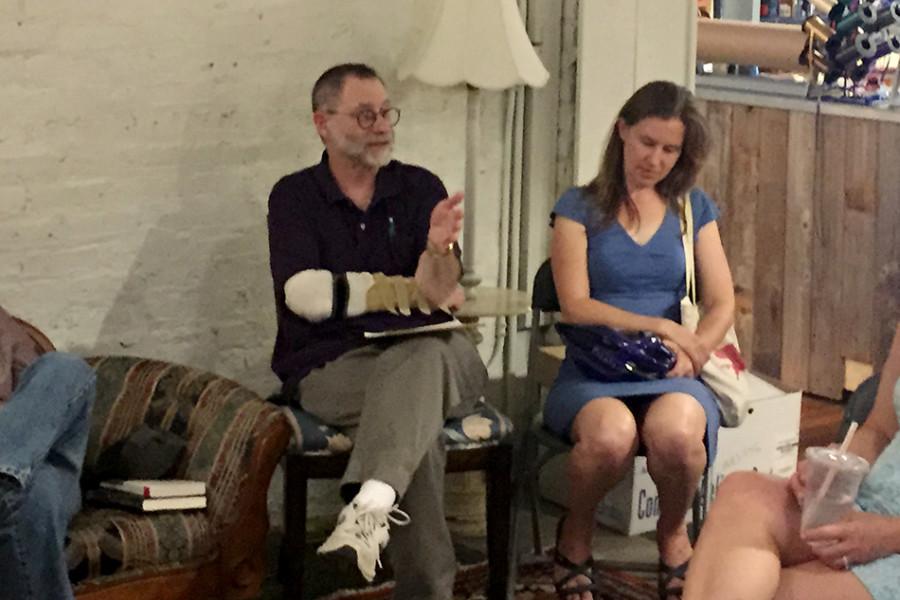Bookends & Beginnings debuts literary salon series with conversation on ‘Go Set a Watchman’
Peter Kotecki/The Daily Northwestern
Northwestern law professor Steven Lubet led a literary salon on Harper Lee’s “Go Set a Watchman” at Bookends & Beginnings Tuesday night. The bookstore’s first literary salon included a discussion on the contrasting portrayal of Atticus Finch in the new novel compared to Lee’s “To Kill a Mockingbird.”
August 12, 2015
Northwestern law professor Steven Lubet (Weinberg ‘70) led a conversation at Bookends & Beginnings on Tuesday evening about author Harper Lee’s new novel “Go Set a Watchman” and its effect on Americans’ perceptions of its character Atticus Finch.
Lubet discussed “Go Set a Watchman” with an audience of more than 30 people at the bookstore’s first literary salon, a tradition associated with 17th and 18th-century French literary movements in which people gather to converse on important topics.
The salon included dialogue on the novel’s literary and historical value, the contrasting portrayal of Atticus in the new novel compared to its predecessor “To Kill a Mockingbird” and a debate on whether Lee wanted the novel to be published. Attendees also discussed the book’s resemblance to a draft of Lee’s Pulitzer Prize-winning novel, “To Kill a Mockingbird.”
Lubet said he sees no literary value in “Go Set a Watchman,” but finds extreme historical value in it. The manuscript for the novel was discovered in Lee’s archives in 2011, decades after she wrote it, and it is considered to be an early draft of “To Kill a Mockingbird.”
“It gives us an insight into how a revered author turned a very poor product into an extremely good one,” he said. “First drafts are not very good by nature, and here we can see at least part of the development of the book.”
Lubet teaches a School of Law course called Narrative Structures in which he uses “To Kill a Mockingbird” as an example of how stories are told in a persuasive and interesting way. The course is about the way narrators — including lawyers, novelists, journalists and film directors — put stories together, he said.
“Lawyers are narrators, but we are not the only narrators, so we can learn from what other people do,” he said.
Lubet also praised Bookends & Beginnings for hosting its first literary salon.
“It’s the highest, best use of bookstores,” he said. “It’s great that there is (an independent) bookstore in the community — there hasn’t been for 10 years probably — and this is a valiant effort to bring a terrific resource.”
Historically, literary salons were held to educate and entertain audience members, said Jeff Garrett, co-owner of Bookends & Beginnings. The bookstore plans to host monthly literary salons for the Evanston community, he added.
“Evanston is one of the most educated communities in the country, and it shows at events like this,” Garrett said.
Evanston resident Jean Cunningham said she thought the event was a positive experience and a great way to create community conversation.
“It was a depth of conversation that I didn’t expect,” she said. “There was so much knowledge in the room, and yet anyone could contribute and people would listen to each other.”
Email: [email protected]
Twitter: @peterkotecki


